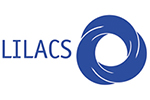ISSN Online: 2177-1235 | ISSN Print: 1983-5175
Showing of 1 until 1 from 1 result(s)
Search for : Adriana Corsetti
Intramuscular 30% polymethylmethacrylate (PMMA) implants in a non-protein vehicle: an experimental study in rats
ABSTRACT
Introduction: In the present study, the stability and biocompatibility of a 30% polymethylmethacrylate (PMMA) filling material implanted in the masseter muscle of rats were investigated according to the cytologic characteristics presented in the graft versus host reaction. Methods: The study included 20 rats, which were divided into 4 groups: groups I, II, III, and IV corresponded to animals evaluated 7, 14, 45, and 60 days after surgery, respectively. The implant was placed in the right masseter muscle at the level of the mandibular angle. Results: After 7 days, lymphoplasmacytic inflammatory infiltrates, a fibrous capsule, a large number of neutrophils, macrophages, and exudate were observed. The second group (14 days) showed granulation tissue composed of a lymphoplasmacytic inflammatory infiltrate, newly formed vessels, and a fibrous capsule. However, the second group also exhibited regeneration of the muscle fibers, and a decreased number of neutrophils and exudate. After 45 and 60 days, the inflammatory infiltrate decreased in intensity compared to the first 2 groups. Conclusions: The inflammatory reaction caused by PMMA is transient and does not compromise the function and the shape of the masseter muscle tissue, suggesting that PMMA is biocompatible.
Keywords: Biocompatible materials. Polymethyl methacrylate. Masseter muscle.
RESUMO
Introdução: Este trabalho busca avaliar, em ratos, a estabilidade e a biocompatibilidade de um material de preenchimento à base de polimetilmetacrilato (PMMA) a 30% implantado no músculo masseter, por meio do padrão, e a organização reacional no tecido receptor. Métodos: Foram utilizados 20 ratos, divididos em quatro grupos: grupo I, que correspondeu ao período de 7 dias de pós-operatório; grupo II, de 14 dias; grupo III, de 45 dias; e grupo IV, de 60 dias. O implante foi realizado no músculo masseter direito, na região do ângulo da mandíbula. Resultados: No período de 7 dias, observou-se presença de infiltrado inflamatório linfoplasmocitário, com formação de cápsula fibrosa e presença de grande número de neutrófilos, macrófagos e formação de exsudatos. Em 14 dias, observou-se a formação de um tecido de granulação composto por infiltrado inflamatório linfoplasmocitário, vasos de neoformação e cápsula fibrosa. Porém, nesse tempo experimental, nota-se a regeneração das fibras musculares e a diminuição do número de neutrófilos e exsudatos. Após 45 dias e 60 dias, observou-se, no tecido muscular, diminuição da intensidade do infiltrado inflamatório, comparativamente aos tempos experimentais anteriores. Conclusões: A reação inflamatória provocada pelo PMMA é transitória e não compromete as funções e o contorno desse tecido muscular, o que sugere que o PMMA é biocompatível.
Palavras-chave: Materiais biocompatíveis. Polimetilmetacrilato. Músculo masseter.
 All scientific articles published at www.rbcp.org.br are licensed under a Creative Commons license
All scientific articles published at www.rbcp.org.br are licensed under a Creative Commons license






